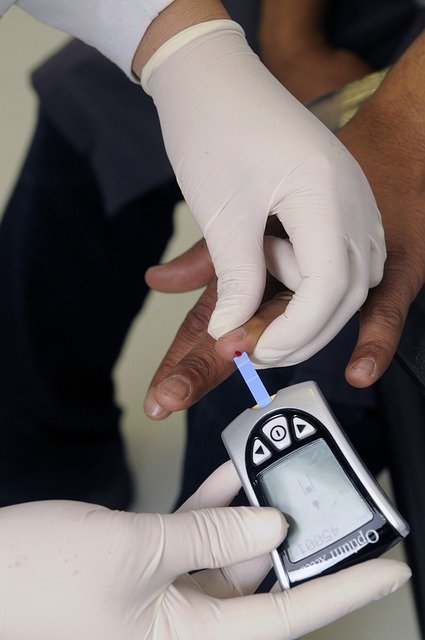Discover Early Signs of Colon Cancer in Women: Key Symptoms and Screening Insights for the United Kingdom 2025
Did you know early colon cancer can show subtle signs that are often overlooked? This article helps women in the United Kingdom understand important symptoms, warning signs, and screening methods critical for early detection and better health awareness.

Understanding Early Signs of Colon Cancer
Colon cancer often begins as small growths called polyps on the lining of the large intestine. While most polyps are harmless, some can gradually develop into cancer if left untreated. In 2025, one challenge is that early-stage colon cancer often presents few or no symptoms, making awareness and proactive screening especially important.
Common Early Symptoms to Watch For
Women should be alert to the following signs persisting beyond three weeks:
- Blood in the stool: Bright red blood may indicate bleeding near the rectum, while black, tarry stool can suggest bleeding higher in the bowel. Sometimes the blood is not visible, so stool tests for hidden (occult) blood can be valuable.
- Persistent changes in bowel habits: Diarrhoea, constipation, or alternating between both could be signs of a partial blockage caused by a tumour.
- Unintentional weight loss: Losing weight without trying or dietary changes should be investigated.
- Ongoing abdominal pain or cramping: Pain that worsens over time, does not respond to usual treatments, and may be accompanied by bloating.
- Fatigue and anaemia: Chronic bleeding from tumours can lead to iron deficiency anaemia, causing tiredness, pale skin, breathlessness, and dizziness.
Symptoms in women generally resemble those in men, so persistent signs should be taken seriously regardless of gender.
Warning Signs That Should Prompt Medical Attention
Seek prompt medical advice if experiencing:
- Rectal bleeding or blood mixed with stool.
- Feeling of incomplete bowel evacuation.
- A palpable lump in the abdomen or rectal area.
- Severe bloating or signs of bowel obstruction (inability to pass stool or gas, intense cramping, nausea, vomiting).Note: Bowel obstruction is a medical emergency.
Early Detection and Screening in the UK
National Screening Programs
In the UK in 2025, NHS bowel cancer screening is offered to adults aged 50–74. The program aims to detect cancer at an early stage or identify polyps before they turn cancerous.
- Every two years, eligible individuals receive a home test kit to check for hidden blood in stool.
- A positive result typically leads to further examination, usually a colonoscopy.
Colonoscopy Process
A colonoscopy uses a flexible tube with a camera to inspect the colon.
- Bowel-cleansing preparations are required beforehand.
- The procedure takes about 30–45 minutes, often under sedation.
- Polyps can often be removed during the procedure, reducing cancer risk.
- If colonoscopy is unsuitable, CT colonography (“virtual colonoscopy”) may be considered.
Additional Diagnostic Tools
- Blood tests can detect iron deficiency anaemia, a potential sign of hidden bleeding.
- Physical examinations, such as abdominal palpation and digital rectal exams, are standard when symptoms are present.
Seeking Medical Advice
Women with persistent symptoms — such as blood in stool, changes in bowel habits lasting more than three weeks, unexplained weight loss, or ongoing abdominal discomfort — should consult their GP. Early assessment supports timely diagnosis and treatment.
Understanding Vital Signs and Systemic Effects
Beyond digestive symptoms, colon cancer can cause:
- Fatigue and breathlessness from anaemia.
- Paleness, dizziness, and chest discomfort due to reduced oxygen-carrying capacity.
These signs may appear even without obvious gastrointestinal symptoms.
Importance of Polyp Removal
Since colon cancer often develops from polyps, early detection and removal during colonoscopy is a key preventive measure. Following screening recommendations and attending follow-up colonoscopies when polyps are found help reduce risk.
Summary of Practical Actions for Women in the UK in 2025
- Participate in NHS bowel cancer screening if aged 50–74.
- Monitor for symptoms such as:
- Blood in stool or rectal bleeding.
- Persistent changes in bowel habits lasting over three weeks.
- Unexplained weight loss or fatigue.
- Abdominal pain, cramping, or bloating.
- Consult a GP promptly if symptoms arise or persist.
- Follow up on positive stool tests with colonoscopy or further investigation.
- Understand that early detection supports better treatment options.
By being informed about these early signs and engaging in regular screening, women in the UK can help detect colon cancer earlier, potentially improving treatment outcomes.
Sources
- Leicester Bowel Clinic: Symptoms of Bowel Cancer in Women
- NHS Inform Scotland: Bowel Cancer
- UK Government: Bowel Cancer Screening – Having a Colonoscopy
Disclaimer: All content, including text, graphics, images and information, contained on or available through this web site is for general information purposes only. The information and materials contained in these pages and the terms, conditions and descriptions that appear, are subject to change without notice.




